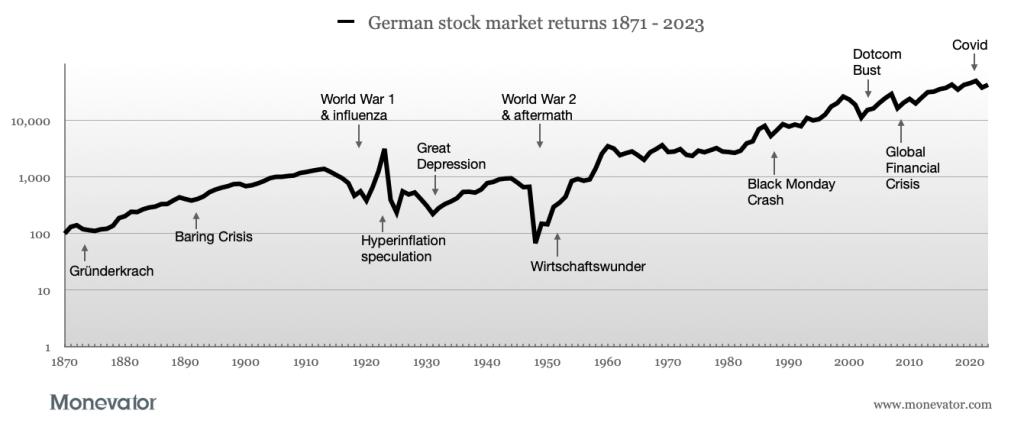
What caught my eye this week.
The tussle between HMRC and the fintech share dealing platforms over whether to enable the holding of fractional shares in an ISA may be reaching a climax.
To summarise, these typically app-based brokers enable you to gain exposure to less than a whole share and to hold these in your ISA account.
For instance Amazon shares currently trade at around $132 a pop. With Freetrade, say, you could invest $66 (ignoring FX fees) and get exposure to just half an Amazon share.
Sounds like a win-win, right? Well the taxman doesn’t approve.
From The Financial Times:
HM Revenue & Customs held a meeting with industry figures and Treasury officials last week, during which it maintained that this type of investment could not be held within a tax-free account despite platforms disputing this interpretation of the rules.
Platforms had hoped that chancellor Jeremy Hunt’s desire to simplify “a complex landscape” of Isa products and encourage more people to save and invest would soften HMRC’s position. They have urged the chancellor to clarify his position in next month’s Autumn Statement.
Moneybox, Trading 212, and the aforementioned Freetrade1 all enable customers to invest in fractional shares in their ISAs.
As far as I’m aware you can currently only invest in US fractional shares, and not UK ones. I’m not au fait with the underlying mechanics but imagine the apps are riding on the US exchanges’ rails.
Half a chance
The platforms argue that enabling fractional share is a more democratic way to invest, because it allows people to put small amounts of money into individual (US) shares.
Sure, though I suspect it’s also so they can better maximise smaller trade sizes.
In my example you could put £400 into Amazon shares without the broker having to round down your order to the nearest share.
That makes it easier to get all your money invested. A win for the broker as well as the investor.
So what’s the problem? The issue is to do with what counts as a ‘qualifying investment’ in the ISA rules.
From HMRC’s perspective, that’s a fact and not an opinion. And the ISA rules which HMRC is following no doubt pre-date trading in fractional shares in the UK. They were written with some consumer protections in mind, so everyday ISA investors wouldn’t be encouraged to go spreadbetting or similar.
(Of course an ISA investor is free to put their money into spivvy small-cap mining stocks, but that’s a different kind of risk…)
Freetrade’s CEO Adam Dodds is quoted in the Investor’s Chronicle as saying:
Our fractional shares give retail customers ownership of a portion of an actual company share. They are not a derivative contract.
The protections and benefits for retail investors are effectively the same as for whole shares.”
I guess I can see both sides.
The tax authority surely must uphold the rules as it sees them.
But it’s hard to see how this interpretation serves anyone’s best interest, and it would surely be trivial for the government to fix.
On that note Freetrade has created a template letter that you can use to lobby the Treasury on the issue.
I’ve just noticed Freetrade suggested the deadline was yesterday. Oops! However I’ve clicked through and the Treasury still seems to be taking online representations.
If you want to give it a crack:
Download/save a copy of Freetrade’s template letter.
Go to the Treasury’s portal for submissions for the Autumn Statement
Select ‘Personal’ and ‘Savings’ tax
Attach the template letter and submit
Have a great weekend!
From Monevator
Could your partner manage the family finances without you? – Monevator [Members]
From the archive-ator: Living like a millionaire – Monevator
News
Note: Some links are Google search results – in PC/desktop view click through to read the article. Try privacy/incognito mode to avoid cookies. Consider subscribing to sites you visit a lot.
UK house prices down 13.4% from peak in real terms [Search result] – FT
Bank transfer fraud protections could be weakened by the regulator – Which
American consumers unique in spending down pandemic savings – New York Fed
St James’s Place shares plunge on reports of fee overhaul [Search result] – FT
Top 10 up-and-coming areas in the UK for first-time buyers – This Is Money
Nobel economics prize awarded to Claudia Goldin for her work on women’s pay – BBC
The deadly Indian loan scam app that blackmails with nudes – BBC
Do honest countries make the best investments? – Morningstar
Products and services
Six ways to get a cheap or free will in October – Which
Copy trading: a road to riches or risk? [Search result] – FT
Coventry and Skipton launch Best Buy easy-access cash ISAs that pay more than 5% – This Is Money
Get £50 free trading credit when you open an account with Interactive Investor. Terms apply – Interactive Investor
Hargreaves Lansdown to launch readymade pension with 0.75% annual fee – This Is Money
The best offers for switching banks; get up to £200 cashback – MoneyWeek
Waiting lists for allotments in England almost doubles in 12 years – Guardian
Six homes listed for sale that come with solar panels – This Is Money
Open an account with low-cost platform InvestEngine via our link and get £25 when you invest at least £100 (T&Cs apply. Capital at risk) – InvestEngine
New UK coins will help children learn how to add up – BBC
American Express hikes some annual card fees – Be Clever With Your Cash
Flats with gardens for sale, in pictures – Guardian
Comment and opinion
How to save more on a lower income – A Wealth of Common Sense
4% rule inventors’ latest thinking on withdrawal plans – Investor Perspectives
Spending is harder than saving for some people – A Teachable Moment
Bonds’ pain is a retirees gain – Morningstar
The paradox of past performance – Behavioural Investment
Trying to time the market costs UK investors 7% of their annual returns – II
“My kids are trust fund babies. And they have no clue.” – Slate
What makes someone rack up six-figure credit card debt? – Humble Dollar
The difference between stocks and bonds – A Wealth of Common Sense
“The war on poverty has become a war on the poor” – Guardian
Solved problem – Indeedably
Dying with zero: the life of Charles Feeney – Abnormal Returns
The particular problems men face in retirement – Humble Dollar
Naughty corner: Active antics
Larry Swedroe: how likely are market crashes? – Morningstar
Interview with UK investor Chris Mills [Podcast] – CityWire via Apple
The alpha of ugliness [Search result] – FT
Valuing intangibles, such as Birkenstock’s brand value… – Musings on Markets
…as the cult shoemaker goes public – CNBC
Twitter/X is dead, long live XYZ mini-special
The Israel-Hamas war is drowning X is disinformation – Wired
This is what an unmoderated Internet looks like – Garbage Day
Elon Musk created a safety mess on X – Mashable
So long Twitter, I’m outta there – Drezner’s World
How the attacks in Israel are changing Threads – Platformer
Kindle book bargains
The Simple Path to Wealth by JL Collins – £0.99 on Kindle
Mastering the Market Cycle by Howard Marks – £0.99 on Kindle
The Power of Moments by Chip and Dan Heath – £0.99 on Kindle
Think and Grow Rich by Napoleon Hill – £0.99 on Kindle
Environmental factors
Half a billion cheap electrical items go to UK landfills a year – Guardian
The Amazon rainforest is being pushed close to a tipping point – Vox
“Refusing to fly has cost me my job as a climate researcher” – Guardian
How to build a heat-resilient city – Grist
Don’t worry about a global population collapse – Japan Times
The impact of impact investing – Musings on Markets
ESG’s… okay [Search result] – FT
Robot overlord roundup
Can AI beat the market? – Bloomberg via MSN
Off our beat
Are Golden Retrievers and other dog breeds dying younger? – Slate
Even Google was afraid to release this facial search engine technology – NPR
Understanding FOBO, the grown-up version of FOMO – Darius Foroux
Why Gen Z is obsessed with the Duolingo owl – Fast Company
Don’t just look at the results – A Wealth of Common Sense
And finally…
“Investors who focus on currencies, bonds, and stock markets generally assume a normal distribution of price changes: values jiggle up and down, but extreme moves are unusual. Of course, extreme moves are possible, as financial crashes show. But between 1985 and 2015, the S&P 500 stock index budged less than 3 percent from its starting point on 7,663 out of 7,817 days; in other words, for fully 98 percent of the time, the market is remarkably stable.”
– Sebastian Mallaby, The Power Law
Like these links? Subscribe to get them every Friday. Note this article includes affiliate links, such as from Amazon and Interactive Investor.
Disclosure: I’m a shareholder in Freetrade.
The post Weekend reading: fractional infighting appeared first on Monevator.



